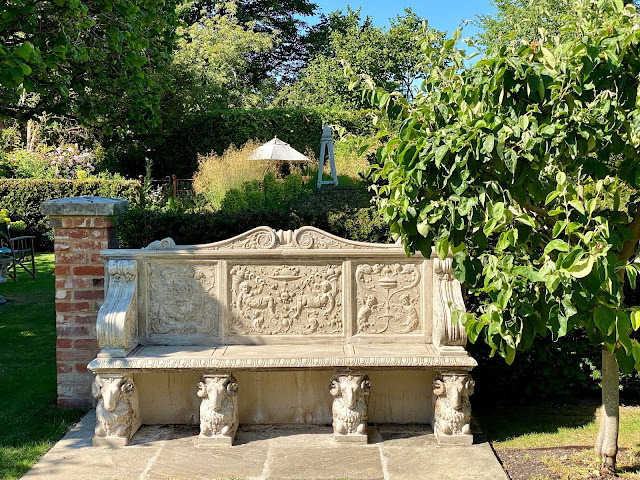 |
| ‘Death of Actaeon’ (about 1559-75), the National Gallery, London |
The National Gallery have organised an astonishing exhibition - Titian - Love, Desire, Death, that unites all six paintings, in a series that Titian referred to as the 'poesie', for the first time in over 400 years. Ironically, the exhibition opened in March 2020 just as the Coronavirus restrictions prevented the public from visiting; a shocking event that perfectly demonstrates the cruel and capricious way in which the Gods play with our lives.
 |
| 'Danaë’ (about 1551–3), The Wellington Collection, Apsley House |
 |
| ‘Venus and Adonis’ (1554), Prado, Madrid |
 |
| ‘Rape of Europa’ (1559–62) from the Isabella Stewart Gardner Museum, Boston |
Ovid's poems provided Titian with tales from a world where capricious and cruel immortals play havoc with the lives of men and women. The paintings all have themes of seduction, disguise and power.
Click here for the National Gallery Facebook page where the two 'Diana' painting are discussed
Click here for the fascinating BBC programme which discusses the exhibition
See also Favourite Writings - Ovid
And finally, I can't resist adding another similar painting, 'Bacchus and Ariadne' by Luca Giodarno, that hangs in the Herbert Gallery and Museum, Coventry.
Click here for the National Gallery Facebook page where the two 'Diana' painting are discussed
Click here for the fascinating BBC programme which discusses the exhibition
See also Favourite Writings - Ovid
And finally, I can't resist adding another similar painting, 'Bacchus and Ariadne' by Luca Giodarno, that hangs in the Herbert Gallery and Museum, Coventry.
'It is a virtuoso reinterpretation and expansion of Titian's famous painting of 'Bacchus and Ariadne' which is now in the National Gallery, London. It tells a story which was popular in classical times and in the renaissance. Theseus had killed the Minotaur and escaped from the Labyrinth by means of a ball of string given to him by Ariadne. He took Ariadne off with him in his ship but (this is where the painting begins) abandons her on the island of Naxos. She holds the string and gazes at his vanishing sail, but behind her Bacchus, the god of wine and revelry arrives to comfort her.' The story is further immortalised in Richard Strauss's semi-comic opera, 'Ariadne Auf Naxos'
See also 'The Lasting legacy of Ovid'

















